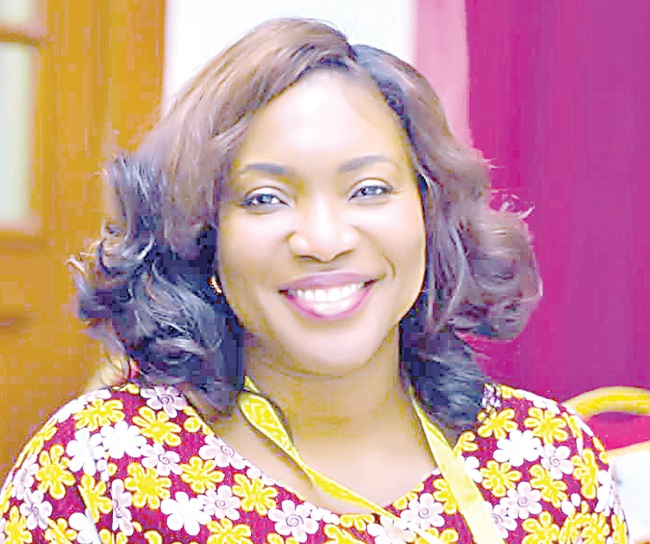OYO State recently launched an intervention tagged “Tomotiya’, an initiative it says is intended to better the health of mothers and children in the state. What was the basis for this intervention?
Oyo State health indices are not great. Based on the 2018 National Demographic Health Survey (NDHS), we have 30 deaths per a thousand live births. The UNICEF situation analysis report for 2016 indicated that Oyo State contributed to more than a third of all the babies dying in Nigeria. And our scorecard on maternal mortality is not great either.
Now, some of the reasons for this include lack of equipment, inadequate infrastructure, poor staffing in hospitals, ignorance and misconception about health care centres and weak integration of healthcare services. Many people still patronise unskilled birth attendants and that contributes significantly to the deaths of mothers and newborns.
So how does Tomotiya come in into all of this?
The Tomotiya initiative is simply a focus on maternal and child care. We know that too many mothers and babies are dying and we’ve decided that it’s time to fix the problem and where there are weaknesses, we want to eliminate those weaknesses and strengthen them. We envisage that it will contribute to a healthier and more prosperous society as healthy babies grow into healthy adults and thrive and contribute meaningfully to their societies and communities. Working with partners, in about two years, we want to reduce maternal mortality by 30 per cent and reduce neonatal mortality by 20 per cent.
This, we intend to achieve by ensuring increased use of health facilities by 60 per cent; increased skill birth utilisation by 50 per cent; promoting early incitation of breastfeeding and essential breastfeeding, as well as setting up newborn corners in one Primary Health Care Centres per ward; as well as setting up special care baby units in secondary health care facilities. This, we will start with a pilot project with UNICEF in Saki West, Ibarapa North and Ibadan North-East local government areas. These are three local governments with the worst indices.
Are there specific programmes to be adopted in meeting these targets?
Yes, some of them are actually novel, high-impact initiatives. One is the ward health rangers, an initiative that was deployed in South Africa and found to be very effective. With the ward rangers, two respected members of the community per ward will be responsible for the health of the families within their ward. For instance, they’re going to be responsible for the immunisation of those families, hanging of mosquito nets, bringing mothers in for Family Planning and ensuring that pregnant women come to the Ante-Natal Clinic. They will be given specific targets to achieve in their respective wards in a year.
Second is emergency medical services. There will be community health taxes and designated emergency departments. Respected members of the community also recommended by the ward development committees who have cars or means of transport will be trained on basic life-saving skills. They are to help transfer members of the community to primary health care centres for an agreed token. So, the problem of women not being able to come for antenatal visits and all of that will be minimised. An emergency transport system is to be developed. It will start with a pilot call centre in Ibadan, which should roll out by January 2021. But we are starting a formal paramedic training this year at the College of Health Sciences and Technology, Eleyele. We’re also going to have designated emergency departments, where people are going to be trained to take care of emergencies. This will be starting at the Ring Road State Hospital in Ibadan and will eventually be scaled up to one designated emergency department per geopolitical zone.
Why is the state going all out on creating emergency departments and services?
Right now, we don’t have emergency medicine training in Nigeria. What that means is that we don’t really have an emergency department that runs like one. The National Postgraduate College of Medicine has just approved training for emergency medicine in Nigeria and Oyo State in collaboration with the University College Hospital, Ibadan has the the intention of starting the training of emergency medicine doctors.
Out of pocket spending is a barrier to accessing health facilities by many women, what is the way forward?
Already, an intervention that is coming up is the insurance adoption programme. If individuals cannot afford available services, it is not going to be useful. Merely giving free health is not always so sustainable. But a sustainable way to do this is health insurance. Under the insurance adoption programme, private individuals, companies, associations, and organisations will sponsor people for health insurance. For example, it is for about N8,000 per life per year. A company may decide to sponsor 100 women for a year, that’s less than a million naira. No doubt, this will be an addition to what the government is already doing. By so doing, we can cover lots of women in an accountable way and have them get access to all those things that we’re going to be providing for them.
How does Oyo State intend to achieve increased skill birth utilisation by 50 per cent?
The community midwives initiative is really about unskilled birth attendants. Traditional birth attendants are part of our community and many people believe in them. But more importantly, they are interested in providing antenatal care. So, we want to sponsor them to community midwifery school for two years to actually become midwives. And in that way, we will be reducing the number of unskilled birth attendants, including those who will be advocates of good and proper antenatal care as well as safe delivery. Funding for this will come from local governments and private organisations.
Are there plans to adopt technology to also boost access to health care services?
Moving around the state, we see that there are places that have no health professionals, and where proper health care service is just not available. We are considering digital health network. In many of those places, they have cell phones so with telemedicine system, we want to get them access to actual proper medical healthcare, including certified pharmacies and laboratories. It is hoped that this will reduce quackery while at least bridging some of the gaps in access to healthcare in hard to reach areas.
Moreover, a pilot on electronic medical records is to start at the Ring Road State Hospital and the Jericho Specialist Hospital. This is supported by a grant from Global fund. Aside from helping to record patient data properly, it will help to improve the standard of care in general.
A goal of the Tomotiya intervention is ensuring increased use of health facilities by 60 per cent. How will this be achieved given the deplorable state of many primary health centres in the state?
An upgrade of primary health care centres is ongoing. This is something Governor Seyi Makinde is particularly passionate about. He wants to make sure that all at the grassroots has a decent health care centre to go to. The plan is that every ward would have an upgraded and renovated healthcare centre. Governor Makinde wants to have at least 351 healthcare centres renovated by early 2023.
Of course, other high-impact initiatives to concentrate on will include things like immunisation, focused antenatal and newborn care, childhood nutrition and making sure that there is standardised management for common childhood illnesses.
YOU SHOULD NOT MISS THESE HEADLINES FROM NIGERIAN TRIBUNE
ICYMI: CBN Lists Business Activities Eligible For N75bn Youth Investment Fund
THE Central Bank of Nigeria (CBN) has revealed main business activities and sectors in the Nigerian economy that are eligible to access its N75 billion Youth Investment Fund…
#EndSARS: Fr Mbaka Asks Buhari, Past Leaders To Apologise To Nigerians
Controversial Catholic priest and Spiritual Director of Adoration Ministry, Enugu, Nigeria, (AMEN), Rev Fr Ejike Mbaka, has taken a swipe at President Muhammadu Buhari and past leaders of the country demanding that the President should apologize to the country, especially the youth, on behalf of himself and his predecessors, for causing Nigerians so much pain…






